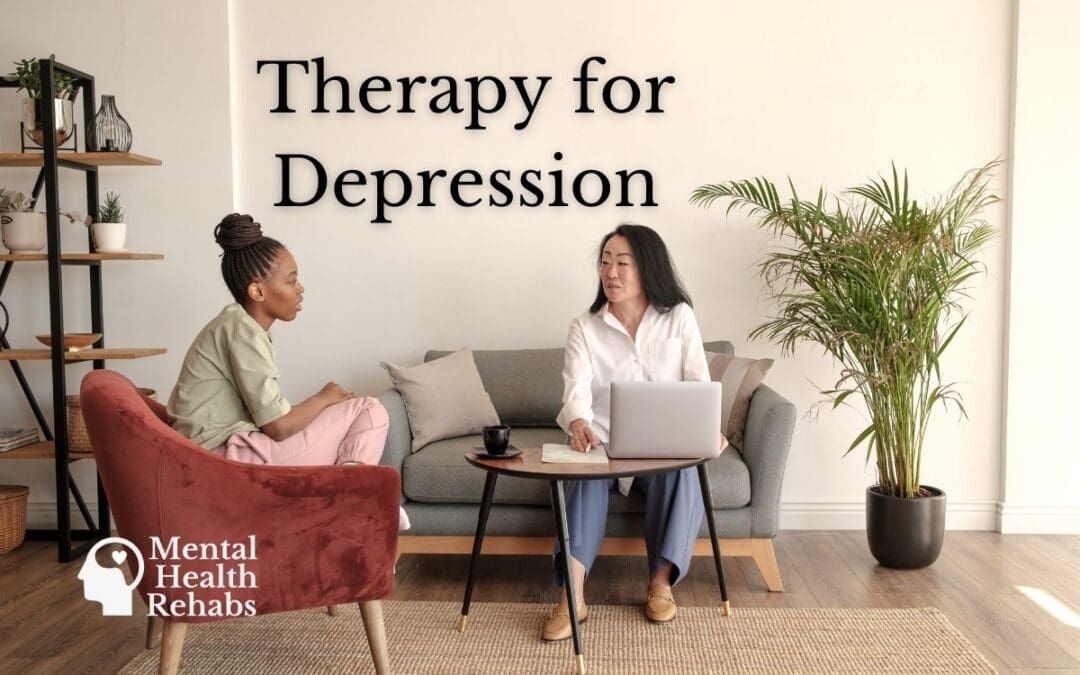Depression is a mental health disorder that affects millions of people worldwide. It can significantly impact an individual’s daily life, making it difficult to carry out basic tasks, work, and maintain relationships. While medication can help alleviate symptoms, therapy is often essential to treating depression. There are several types of therapy available, each with its own unique benefits. Here, we will explore some of the most effective, research-based therapy options for individuals experiencing depression.
1. Cognitive Behavioral Therapy (CBT)
Cognitive Behavioral Therapy (CBT) is a type of therapy that focuses on identifying negative patterns of thought and behavior and working to change them. This therapy aims to help individuals become more aware of their negative thought patterns and replace them with more positive ones. CBT has been shown to be effective in treating depression, with research suggesting that it can be just as effective as medication.
2. Interpersonal Therapy (IPT)
Interpersonal Therapy (IPT) is a short-term therapy that focuses on improving an individual’s relationships with others. This therapy aims to help individuals identify and resolve conflicts in their relationships, which can often contribute to depression. IPT has been shown to be effective in treating depression, particularly in individuals who have experienced recent life changes or losses.
3. Behavioral Activation (BA)
Behavioral Activation (BA) is a type of therapy that focuses on increasing an individual’s engagement in positive activities. This therapy aims to help individuals identify activities that they enjoy and provide a sense of accomplishment. By engaging in these activities, individuals can experience an improvement in their mood and a reduction in depression symptoms. Research shows it can be highly effective in adolescents.
4. Psychodynamic Therapy
Psychodynamic therapy is a type of therapy that focuses on exploring an individual’s unconscious thoughts and emotions. This therapy aims to help individuals gain insight into the root causes of their depression and develop strategies to address them. While research on the effectiveness of psychodynamic therapy in treating depression is limited, some studies suggest that it can be effective for individuals with moderate to severe depression.
5. Mindfulness-Based Cognitive Therapy (MBCT)
Mindfulness-Based Cognitive Therapy (MBCT) is a type of therapy that combines elements of CBT with mindfulness meditation practices. This therapy aims to help individuals become more aware of their negative thought patterns and develop a more compassionate and accepting attitude toward them. Research suggests that MBCT can effectively reduce the risk of relapse in individuals with a history of depression.
6. Eye Movement Desensitization and Reprocessing (EMDR)
Eye Movement Desensitization and Reprocessing (EMDR) is a type of therapy that has been shown to be effective in treating trauma-related disorders, including depression. This therapy involves using bilateral stimulation, such as eye movements or taps, to help individuals process traumatic memories and reframe negative thoughts.
7. Dialectical Behavioral Therapy (DBT)
Dialectical Behavioral Therapy (DBT) was initially developed to treat borderline personality disorder but has also been shown to be effective in treating depression. This therapy combines elements of CBT with mindfulness practices and teaches individuals how to regulate their emotions and develop more effective coping strategies.
8. Holistic Approaches
In addition to traditional therapy approaches, holistic approaches can effectively treat depression. These approaches include:
- Exercise: Regular physical activity has been shown to be effective in reducing depression symptoms.
- Nutrition: Eating a balanced diet can help support overall mental health.
- Mindfulness practices: Mindfulness meditation, yoga, and other mindfulness practices can help individuals become more aware of their thoughts and emotions and develop a more compassionate and accepting attitude toward them.
- Art therapy: Engaging in creative activities, such as painting or drawing, can give individuals a sense of accomplishment and help reduce depression symptoms.
- Animal-assisted therapy: Spending time with animals, such as therapy dogs or horses, can help individuals reduce stress and improve their mood.
Final Thoughts
There are several types of therapy available for individuals experiencing depression. While each therapy has its own unique benefits, research suggests that Cognitive Behavioral Therapy (CBT) is the most effective in treating depression.
However, it is essential to find a therapy that works for the individual, as different types of therapy may be more effective for different people. It is also important to remember that therapy is just one component of treating depression and that medication may also be necessary. With the right treatment and support, individuals with depression can learn to manage their symptoms and live a fulfilling life.

